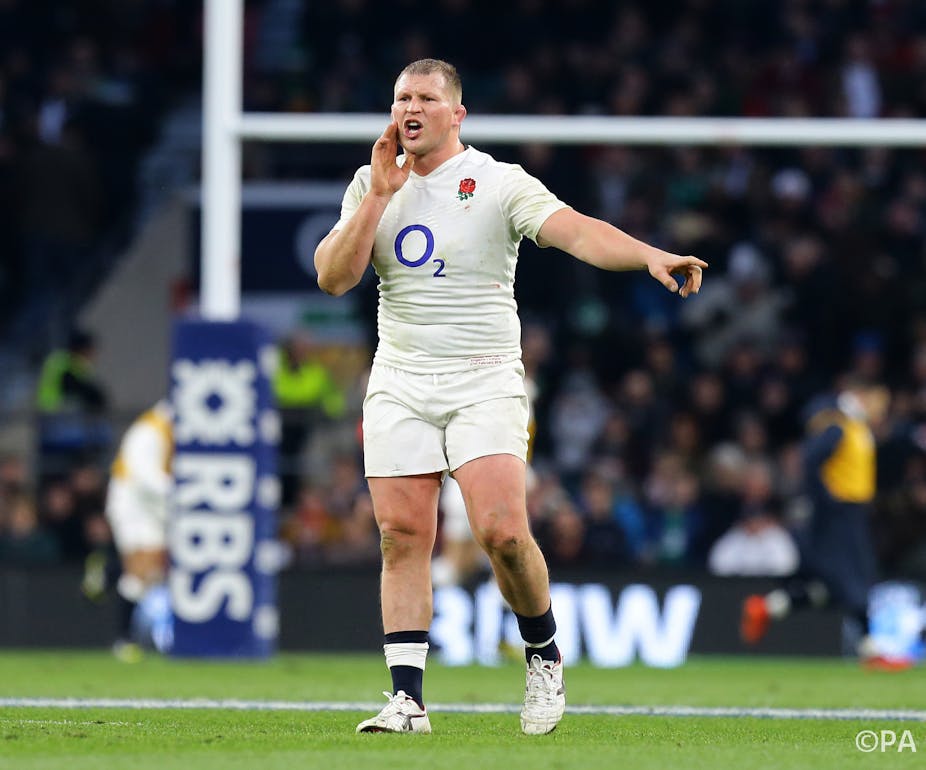When Dylan Hartley was appointed captain of the England rugby squad by new coach Eddie Jones there were immediate concerns raised about his disciplinary record. Will he be able to stay on the pitch when opponents try to exploit his temperament? Will his actions be decisive in a constructive or destructive way?
Hartley’s previous conduct will have been poured over by England’s coaches and their opposite numbers at other teams, with the former trying to identify what triggers his ill-discipline in order to manage it, and the latter to develop strategies that maximise the potential to exploit it. Hartley will have the benefit of sports psychologists’ assistance to develop coping skills, increase his emotional intelligence, and manage his anger. If he controls his temper his inclusion will be deemed a success, while if he is sent off it will be seen as a mistake and a failure. The leopard, it will be argued, cannot change his spots.
This can be seen as a psychological issue, or a moral one. Deviant behaviour has provided a rich topic for psychological analysis, and repeat offenders like Hartley – and there are many others in sport – perplex us. We can imagine friends of Luis Suarez sending him to the 2014 World Cup with the advice: “Whatever you do Luis, don’t bite anyone” – yet when a particular set of circumstances arose, that was what he did. Similarly, when Hartley finds himself in a particular situation, his reaction often takes the form of foul play.
A key question for psychologists is to what extent behaviour is a product of personality and to what extent it is the result of environment or circumstances. Despite Stanley Milgram’s infamous experiments in the 1960s and 70s that involved subjects apparently delivering potentially lethal electric shocks to demonstrate the powerful effect authority figures can have on behaviour, there is still a folk psychological emphasis on an individual’s “character”. We describe, and prefer, people on the basis of their character traits. On the whole we prefer honest, loyal and committed partners, kind and dedicated doctors and nurses, and determined, courageous rugby players. We eschew corrupt, dishonest and disloyal friends in favour of those who show integrity and loyalty.
Avoid, manage, contain
But a commitment to character doesn’t mean we will never be let down. There may be circumstances where even the most resolute character trait fails. We should recognise that dispositions do not guarantee behaviour, only predispose us towards certain behaviour given certain circumstances. Knowing which circumstances undermine our virtues and then avoiding them is as important as seeking to strengthen our will and resolve. Individuals prone to explosive anger in the face of provocation would do well to avoid such provocation. Given that Hartley will find it near-impossible to completely avoid triggers, if he wants to carry on playing he will have to focus on changing his characteristic responses.
This is very difficult as anyone who has tried to break a habit will know. Our habits are comfortable (albeit destructive at times), subconscious ways of being and acting. Anger management, cognitive behavioural therapy, perhaps even hypnotherapy might be tried. To change a habit, however, requires retraining the mind in real-life circumstances. New habits need to be cultivated which is no overnight matter, particularly so in adulthood. Even if successful there’s no guarantee that when faced with a new and unexpected situation the old behaviour will not reappear. Were I a betting man, I’d put money on Hartley re-offending.
Sport’s (sometimes missing) ethics
Another way of looking at it is as a moral issue. While the psychological analysis poses the question of what circumstances trigger Hartley’s anger, we could less generously describe him as malicious, malevolent, bellicose or malign – an abrasive character whose bad traits are displayed on the field. Sport is full of such characters, and some argue that they thrive because of these characteristics. Viera, Keane and Rooney in football, and Hartley, Botha and Brian Moore in rugby are all players who play “close to the line”. So we might ask whether we should as a society celebrate practices where aggression, violence and intentional harm are rewarded – particularly in the light of growing concerns over the effects of concussion in rugby. A less futile question is whether a person with a track record or character traits of bad behaviour should be chosen as England captain.
I think representing your country in any sphere and leading one’s country as sporting captain is a privilege that comes with responsibilities to behave. Yet the professional game’s narrative, however, is ambiguous in this regard. Tindall was appointed captain despite drink driving convictions, but later sacked for his role in the infamous dwarf throwing episode. Martin Johnson had a reputation for abrasiveness but captained England and the Lions extremely successfully in no small part because of certain traits that would be condemned outside the game.
I’m afraid that, when it comes to professional sport, there is at best faux moral outrage – fuelled by social media – and at worst, as Scotland’s national football team manager Gordon Strachan so adroitly observed during the last World Cup: “We don’t have morals in football.” Hartley will continue to hold the England captaincy until he no longer merits the role – not on any moral grounds, but purely on performance.

